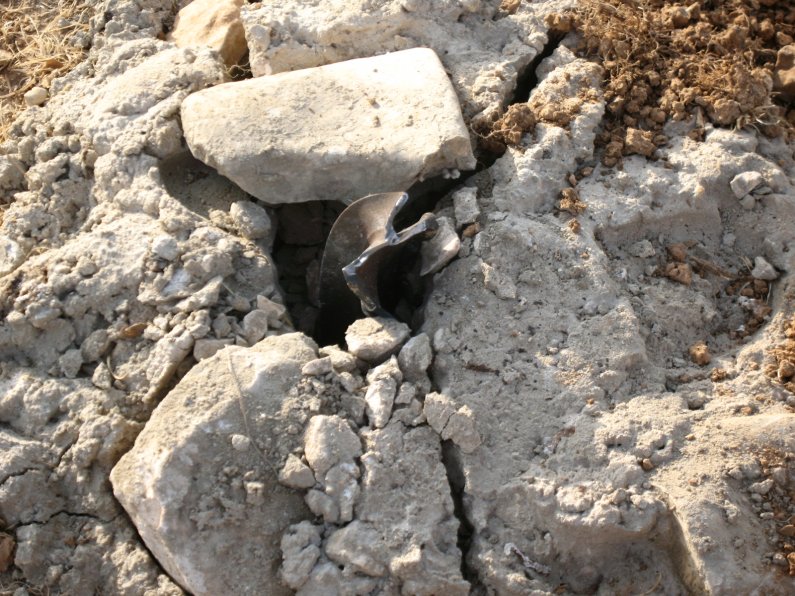Tag: At-Tuwani
-
CPT: Palestinian fence damaged in village in At-Tuwani area
Christian Peacemaker Team – At-Tuwani & Operation Dove On the morning of Wednesday, 4 August, Palestinians from At-Tuwani found that their fence built between the village and the nearby Havat Ma’on settler outpost had been partially destroyed during the night. The fence, made from cemented metal supports and barbed wire, was funded by European Commission…
-
Operation Dove: Armed Israeli settlers steal a sheep from a Palestinian shepherd
Operation Dove At-Tuwani – South Hebron Hills: Yesterday, on Wednesday, 21st of July 2010, three settlers, one of them armed, stole a sheep from a young Palestinian shepherd, a resident of the village of Tuba, while he was watering the flocks at a well situated in Umm Zeitouna valley, which is located between the Israeli…
-
Operation Dove: Israeli masked settlers attack At-Tuwani Palestinian village
Operation Dove At-Tuwani – On the morning of Saturday, 12th June 2010, shortly before 11.00, about thirty Israeli settlers from Havat Ma’on oupost, masked and armed with slings and sticks, invaded At-Tuwani village, attacking the most exposed house of the village and throwing stones against Palestinian villagers. The settlers approached the house and soon damaged…

